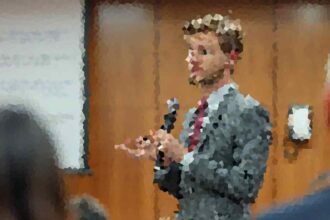The job interview question “Tell me about yourself” is a staple in nearly every interview, serving as an icebreaker that sets the tone for the conversation. It’s often the first question asked, yet it can be one of the most challenging to answer effectively. We understand that crafting a compelling, concise, and professional response requires strategy, preparation, and confidence. This comprehensive guide provides a step-by-step approach to mastering this question, ensuring you leave a lasting impression on hiring managers. With actionable tips, real-world examples, and tailored strategies for various industries, we’ll help you create a response that showcases your unique value and aligns with the role you’re targeting.
Why “Tell Me About Yourself” Matters in a Job Interview
The Tell me about yourself question is more than a casual opener. It’s an opportunity for interviewers to assess your communication skills, personality, and fit for the role. We emphasize that this question allows you to take control of the narrative, highlighting your strengths and aligning your background with the company’s needs. Hiring managers use this response to gauge:
-
Relevance: How well your experience aligns with the job.
-
Clarity: Your ability to articulate thoughts concisely.
-
Confidence: Your self-assurance and professionalism.
-
Cultural Fit: Whether your values align with the company’s culture.
A well-crafted answer sets a positive tone, builds rapport, and positions you as a strong candidate. We’ll guide you through structuring a response that balances personal and professional details while avoiding common pitfalls.
Structuring Your Answer: The Past-Present-Future Framework
To deliver a compelling response to “Tell me about yourself,” we recommend using the Past-Present-Future framework. This structure organizes your answer into a logical flow, making it easy for interviewers to follow while showcasing your qualifications. Below, we break down each component and provide detailed strategies for crafting your response.
Step 1: The Past – Highlight Your Background and Achievements
Begin your answer by summarizing your professional background, focusing on experiences that are relevant to the role. We suggest starting with a brief overview of your career trajectory, emphasizing key accomplishments that demonstrate your expertise.
-
Start with a Strong Opening: Introduce yourself with a concise statement about your professional identity. For example, “I’m a results-driven marketing professional with over seven years of experience in digital strategy and campaign management.”
-
Highlight Relevant Roles: Mention 2–3 key positions or experiences that align with the job. Focus on roles where you achieved measurable results, such as increasing sales, improving processes, or leading teams.
-
Showcase Achievements: Use specific metrics to quantify your impact. For instance, “In my role at XYZ Corp, I led a team that boosted website traffic by 40% through targeted SEO strategies.”
-
Keep It Relevant: Tailor your past experiences to the job description. If applying for a project management role, emphasize leadership and organizational skills rather than unrelated technical expertise.
Step 2: The Present – Explain Your Current Role and Skills
Transition to your current situation, explaining what you’re doing now and how it prepares you for the role. We advise focusing on skills and responsibilities that directly relate to the job you’re applying for.
-
Discuss Your Current Role: Briefly describe your current position or most recent role, emphasizing responsibilities that mirror the job you’re targeting. For example, “Currently, I’m a senior data analyst at ABC Inc., where I analyze customer data to drive strategic decisions.”
-
Highlight Transferable Skills: Identify skills that translate to the new role, such as problem-solving, collaboration, or technical expertise. For instance, “I specialize in using Python and SQL to uncover insights that improve operational efficiency.”
-
Show Enthusiasm: Convey passion for your work to demonstrate engagement. A statement like, “I thrive on solving complex problems and collaborating with cross-functional teams,” adds energy to your response.
Step 3: The Future – Connect to the Role and Company
Conclude your answer by explaining why you’re excited about the opportunity and how it aligns with your career goals. We recommend tying your aspirations to the company’s mission or values to show genuine interest.
-
Express Interest in the Role: Clearly state why you’re applying for this position. For example, “I’m excited about this opportunity at [Company Name] because it allows me to leverage my project management skills to drive innovative solutions.”
-
Align with Company Goals: Research the company’s mission, values, or recent achievements, and incorporate them into your answer. For instance, “I admire [Company Name]’s commitment to sustainability, and I’m eager to contribute to projects that align with those values.”
-
Show Long-Term Vision: Demonstrate that you see this role as part of your career path. A statement like, “I’m looking to grow as a leader in [industry] and believe this role is the perfect step forward,” shows ambition and commitment.
Tailoring Your Answer to Different Industries
We recognize that the Tell me about yourself question requires customization based on the industry and role. Below, we provide tailored strategies for common industries, ensuring your response resonates with hiring managers.
Technology and IT
In tech roles, emphasize technical skills, problem-solving, and adaptability. We suggest focusing on:
-
Technical Expertise: Highlight proficiency in programming languages, tools, or platforms relevant to the role (e.g., Python, Java, AWS).
-
Project Contributions: Discuss specific projects, such as developing an app or optimizing a database, with measurable outcomes.
-
Continuous Learning: Showcase your commitment to staying updated with industry trends, such as earning certifications or attending workshops.
Example Response: “I’m a software engineer with five years of experience developing scalable web applications. At my previous role with TechCorp, I led a team that built a cloud-based platform, reducing latency by 30% using AWS and Node.js. Currently, I’m a senior developer at Innovate Solutions, where I focus on optimizing backend systems with Python and Docker. I’m excited about [Company Name]’s innovative approach to AI-driven solutions and eager to contribute my expertise in full-stack development to your team.”
Marketing and Communications
For marketing roles, highlight creativity, data-driven decision-making, and campaign management. We recommend:
-
Campaign Successes: Share examples of successful campaigns, focusing on metrics like ROI, engagement, or lead generation.
-
Brand Alignment: Emphasize your ability to craft messages that resonate with target audiences.
-
Digital Skills: Highlight expertise in SEO, social media, or analytics tools like Google Analytics or HubSpot.
Example Response: “I’m a marketing strategist with eight years of experience driving brand growth through integrated campaigns. At BrandX, I spearheaded a digital campaign that increased lead generation by 25% through targeted SEO and PPC strategies. Currently, I manage content strategy at Creative Agency, leveraging tools like HubSpot to align messaging with customer needs. I’m thrilled about [Company Name]’s focus on innovative storytelling and eager to contribute my expertise in data-driven marketing.”
Finance and Accounting
In finance roles, focus on analytical skills, attention to detail, and regulatory knowledge. We advise:
-
Financial Achievements: Highlight contributions like cost savings, budget management, or financial reporting.
-
Compliance Expertise: Emphasize familiarity with regulations like GAAP or IFRS.
-
Analytical Tools: Mention proficiency in tools like Excel, QuickBooks, or SAP.
Example Response: “I’m a CPA with six years of experience in financial analysis and reporting. At FinanceCorp, I streamlined budgeting processes, saving $500,000 annually through improved forecasting. Currently, I’m a senior accountant at Global Bank, ensuring compliance with GAAP and leading audits. I’m excited about [Company Name]’s reputation for financial innovation and eager to contribute my analytical skills to your team.”
Healthcare and Nursing
For healthcare roles, emphasize patient care, teamwork, and clinical expertise. We suggest:
-
Patient-Centered Achievements: Share examples of improving patient outcomes or satisfaction.
-
Certifications and Training: Highlight relevant credentials, such as RN, NP, or BLS.
-
Team Collaboration: Discuss working in multidisciplinary teams to deliver care.
Example Response: “I’m a registered nurse with seven years of experience in critical care. At City Hospital, I implemented a patient education program that reduced readmissions by 15%. Currently, I’m a charge nurse in the ICU, coordinating care and mentoring new staff. I’m passionate about [Company Name]’s commitment to patient-centered care and excited to contribute my expertise in high-pressure environments.”
Common Mistakes to Avoid When Answering “Tell Me About Yourself”
We’ve identified several pitfalls that candidates often encounter when responding to this question. Avoiding these mistakes ensures your answer remains professional and impactful.
-
Oversharing Personal Details: While a touch of personality is fine, avoid delving into unrelated personal anecdotes, such as hobbies or family life, unless they directly relate to the role.
-
Being Too Vague: Generic statements like “I’m a hard worker” lack impact. Use specific examples to back up your claims.
-
Rambling: Keep your response concise, ideally under two minutes. Practice to ensure clarity and focus.
-
Ignoring the Job Description: Failing to tailor your answer to the role can make you seem unprepared. Always align your response with the job’s requirements.
-
Sounding Rehearsed: While preparation is key, avoid sounding robotic. Practice delivering your answer naturally.
Tips for Practicing Your Response
To deliver a polished answer, we recommend practicing your response thoroughly. Here are actionable tips to refine your delivery:
-
Write a Script: Draft a response using the Past-Present-Future framework, tailoring it to the role. Keep it to 150–200 words for a 1–2-minute delivery.
-
Practice Aloud: Rehearse in front of a mirror or record yourself to assess tone, pace, and body language.
-
Seek Feedback: Practice with a trusted friend or mentor and ask for constructive feedback on clarity and engagement.
-
Adapt for Each Interview: Customize your response for each job, incorporating specific skills or experiences mentioned in the job description.
-
Time Yourself: Aim for a response that lasts 60–90 seconds to maintain the interviewer’s attention.
Sample Responses for Different Career Stages
We’ve crafted sample responses for candidates at various career stages to illustrate how to tailor your answer.
Entry-Level Candidate
“I’m a recent graduate with a degree in computer science from [University Name]. During my studies, I completed a capstone project where I developed a mobile app that improved user engagement by 20%, earning recognition at a regional tech competition. I also interned at TechStartup, where I assisted in debugging code and optimizing user interfaces. Currently, I’m honing my skills in Python and Java through freelance projects. I’m excited about [Company Name]’s innovative approach to software development and eager to contribute my coding expertise to your team.”
Mid-Career Professional
“I’m a project manager with ten years of experience leading cross-functional teams in the manufacturing sector. At IndustryCorp, I managed a $2M project that reduced production downtime by 15% through streamlined workflows. Currently, I oversee operations at Global Manufacturing, where I implement Agile methodologies to enhance team efficiency. I’m drawn to [Company Name]’s commitment to innovation and excited to leverage my leadership skills to drive your projects forward.”
Career Changer
“I’m transitioning from a career in education to human resources, bringing five years of experience in training and team development. As a high school teacher, I designed professional development programs that improved staff retention by 10%. I recently earned an HR certification and interned at HR Solutions, where I supported recruitment and onboarding processes. I’m passionate about [Company Name]’s focus on employee growth and eager to contribute my skills in talent development.”
How to Handle Variations of the Question
Interviewers may phrase the question differently, such as “Walk me through your background” or “Tell me about your career journey.” We advise treating these variations similarly, using the Past-Present-Future framework while adjusting the tone to match the phrasing. For example:
-
“Walk me through your resume”: Focus on a chronological overview, highlighting key roles and achievements.
-
“What’s your story?”: Incorporate a bit more personality, weaving in motivations or passions that led you to this career path.
-
“Why should we hire you?”: While similar, this question requires a stronger emphasis on how your skills directly benefit the company.
Cultural and Industry-Specific Considerations
We recognize that cultural and industry norms influence how you should approach this question. Here are additional considerations:
-
Corporate vs. Startup Environments: In corporate settings, emphasize structure and measurable results. In startups, highlight adaptability and creativity.
-
Global Interviews: For international roles, be mindful of cultural expectations. In some cultures, modesty is valued, while others expect confidence.
-
Creative Industries: For roles in design or media, weave in examples of creative projects or portfolios to showcase your unique style.
Advanced Strategies for Standing Out
To elevate your response, we suggest incorporating these advanced techniques:
-
Storytelling: Frame your answer as a narrative, using a challenge-action-result (CAR) format to make it engaging. For example, “Faced with declining sales, I implemented a new CRM system, resulting in a 20% revenue increase.”
-
Show Passion: Express genuine enthusiasm for the industry or role. For instance, “I’ve always been fascinated by how data can transform business decisions, which drives my work as an analyst.”
-
Use Keywords from the Job Description: Incorporate specific terms from the job posting, such as “cross-functional collaboration” or “strategic planning,” to align with the employer’s needs.
-
End with a Question: If appropriate, conclude by asking, “Could you share more about the team I’d be working with?” This shows engagement and transitions the conversation.
Preparing for Follow-Up Questions
Your response to “Tell me about yourself” often prompts follow-up questions. We recommend preparing for common ones, such as:
-
“What’s your greatest achievement?”: Have a specific example ready, using metrics to quantify impact.
-
“Why did you leave your last job?”: Frame your answer positively, focusing on growth or new opportunities.
-
“What are your strengths?”: Choose strengths that align with the role and provide examples to back them up.
Tools and Resources for Preparation
We suggest leveraging the following resources to refine your response:
-
LinkedIn: Review your profile to ensure consistency between your answer and online presence.
-
Company Research: Use the company’s website, Glassdoor, or recent news to tailor your response.
-
Mock Interviews: Platforms like InterviewBuddy or Pramp offer practice with feedback.
-
Career Coaches: Consider professional coaching for personalized guidance.
Recommendations and Suggestions
To excel at answering “Tell me about yourself,” we recommend:
-
Practice Regularly: Rehearse your response daily to build confidence and fluency.
-
Tailor Each Answer: Customize your response for every interview, aligning with the job and company.
-
Stay Concise: Aim for a 1–2-minute response to maintain the interviewer’s attention.
-
Seek Feedback: Practice with mentors or peers to refine your delivery.
-
Update Your Answer: As your career evolves, revisit and revise your response to reflect new achievements.
Frequently Asked Questions (FAQs)
-
What is the purpose of the “Tell me about yourself” question?
It allows interviewers to assess your communication skills, relevance to the role, and cultural fit. -
How long should my answer be?
Aim for 60–90 seconds, or about 150–200 words, to keep it concise and engaging. -
Should I include personal details?
Only include personal details if they’re relevant to the role or company culture. -
How do I avoid sounding rehearsed?
Practice until your delivery feels natural, varying your tone and pacing. -
Can I use the same answer for every interview?
No, tailor your response to each role and company for maximum impact. -
What if I’m a recent graduate with little experience?
Focus on internships, projects, or coursework that demonstrate relevant skills. -
How do I handle a career gap in my answer?
Briefly explain the gap positively, focusing on skills gained or personal growth. -
Should I mention my hobbies?
Only if they relate to the job or showcase transferable skills. -
What if I’m changing careers?
Highlight transferable skills and explain your motivation for the transition. -
How do I make my answer memorable?
Use storytelling, specific metrics, and enthusiasm to stand out. -
Can I ask a question at the end of my answer?
Yes, if it feels natural and shows interest in the role or company. -
How do I handle nerves during this question?
Practice extensively and focus on breathing to stay calm and confident. -
What if the interviewer interrupts me?
Stay flexible, address their question, and smoothly return to your response. -
Should I memorize my answer word-for-word?
Memorize the structure and key points, but allow for natural delivery. -
How do I align my answer with the company’s values?
Research the company’s mission and incorporate relevant themes into your response.















